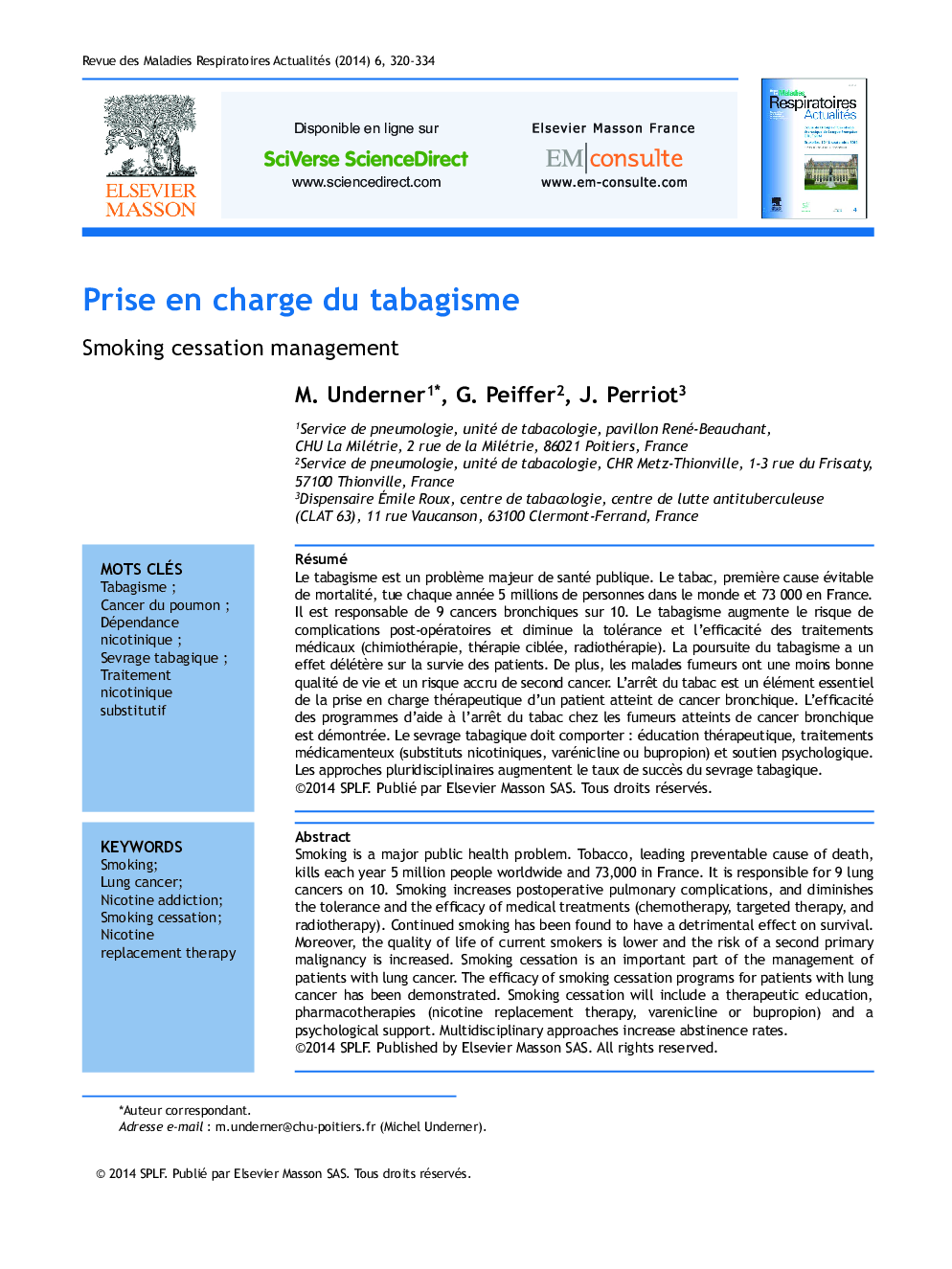| Article ID | Journal | Published Year | Pages | File Type |
|---|---|---|---|---|
| 4215540 | Revue des Maladies Respiratoires Actualités | 2014 | 15 Pages |
Abstract
Smoking is a major public health problem. Tobacco, leading preventable cause of death, kills each year 5 million people worldwide and 73,000 in France. It is responsible for 9 lung cancers on 10. Smoking increases postoperative pulmonary complications, and diminishes the tolerance and the efficacy of medical treatments (chemotherapy, targeted therapy, and radiotherapy). Continued smoking has been found to have a detrimental effect on survival. Moreover, the quality of life of current smokers is lower and the risk of a second primary malignancy is increased. Smoking cessation is an important part of the management of patients with lung cancer. The efficacy of smoking cessation programs for patients with lung cancer has been demonstrated. Smoking cessation will include a therapeutic education, pharmacotherapies (nicotine replacement therapy, varenicline or bupropion) and a psychological support. Multidisciplinary approaches increase abstinence rates.
Keywords
Related Topics
Health Sciences
Medicine and Dentistry
Pulmonary and Respiratory Medicine
Authors
M. Underner, G. Peiffer, J. Perriot,
